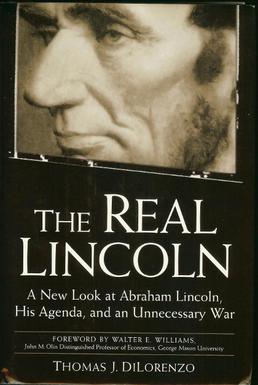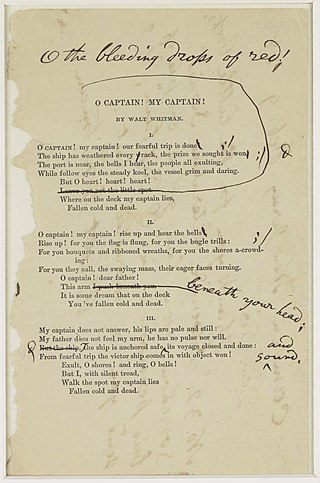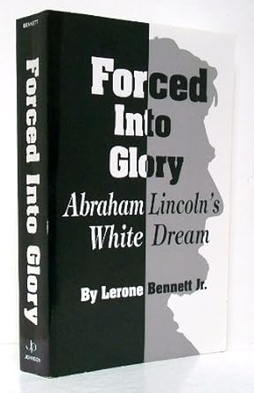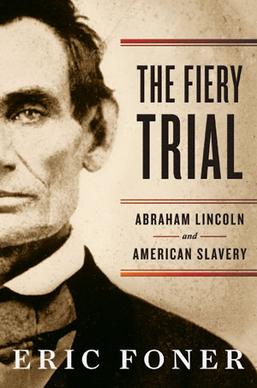
Abraham Lincoln was the 16th president of the United States, serving from 1861 until his assassination in 1865. He led the United States through the American Civil War, defending the nation as a constitutional union, defeating the Confederacy, playing a major role in the abolition of slavery, expanding the power of the federal government, and modernizing the U.S. economy.

Benjamin Franklin "Bluff" Wade was an American lawyer and politician who served as a United States Senator for Ohio from 1851 to 1869. He is known for his leading role among the Radical Republicans. Had the 1868 impeachment of U.S. President Andrew Johnson led to a conviction in the Senate, as president pro tempore of the U.S. Senate, Wade would have become acting president for the remaining nine months of Johnson's term.

Neo-Confederates are groups and individuals who portray the Confederate States of America and its actions during the American Civil War in a positive light. The League of the South, the Sons of Confederate Veterans and other neo-Confederate organizations continue to defend the secession of the 11 former Confederate States.

Thomas James DiLorenzo is an American author and former university economics professor who is the President of the Ludwig von Mises Institute. He has written books denouncing President Abraham Lincoln and is well known among economists for his work chronicling the history of antitrust policy in the United States.
Harry Victor Jaffa was an American political philosopher, historian, columnist, and professor. He was a professor emeritus at Claremont McKenna College, Claremont Graduate University, and was a distinguished fellow of the Claremont Institute. Robert P. Kraynak says his "life work was to develop an American application of Leo Strauss's revival of natural-right philosophy against the relativism and nihilism of our times".

The Real Lincoln: A New Look at Abraham Lincoln, His Agenda, and an Unnecessary War is a biography of Abraham Lincoln written by Thomas J. DiLorenzo, a former professor of economics at Loyola University Maryland, in 2002. He was severely critical of Lincoln's United States presidency.

In political studies, surveys have been conducted in order to construct historical rankings of the success of the presidents of the United States. Ranking systems are usually based on surveys of academic historians and political scientists or popular opinion. The scholarly rankings focus on presidential achievements, leadership qualities, failures, and faults. Popular-opinion polls typically focus on recent or well-known presidents.

"O Captain! My Captain!" is an extended metaphor poem written by Walt Whitman in 1865 about the death of U.S. president Abraham Lincoln. Well received upon publication, the poem was Whitman's first to be anthologized and the most popular during his lifetime. Together with "When Lilacs Last in the Dooryard Bloom'd", "Hush'd Be the Camps To-Day", and "This Dust Was Once the Man", it is one of four poems written by Whitman about the death of Lincoln.

Forced into Glory: Abraham Lincoln's White Dream (2000) is a book written by Lerone Bennett Jr., an African-American scholar and historian, who served as the executive editor of Ebony for decades. It criticizes United States President Abraham Lincoln and claims that his reputation as the "Great Emancipator" during the American Civil War is undeserved.
Neoconservatism and paleoconservatism are two major branches of the American conservative political movement. Representatives of each faction often argue that the other does not represent true conservatism. Disputed issues include immigration, trade, the United States Constitution, taxation, budget, business, the Federal Reserve, drug policy, foreign aid and the foreign policy of the United States.
The Baltimore Plot were alleged conspiracies in February 1861 to assassinate President-elect Abraham Lincoln during a whistle-stop tour en route to his inauguration. Allan Pinkerton, founder of the Pinkerton National Detective Agency, played a key role in managing Lincoln's security throughout the journey. Though scholars debate whether or not the threat was real, Lincoln and his advisors clearly believed that there was a threat and took actions to ensure his safe passage through Baltimore, Maryland. He ultimately arrived secretly in Washington, D.C., on February 23, 1861.

"Hush'd Be the Camps To-Day" is a poem by Walt Whitman dedicated to Abraham Lincoln. The poem was written on April 19, 1865, shortly after Lincoln's assassination. Whitman greatly admired Lincoln and went on to write additional poetry about him: "O Captain! My Captain!", "When Lilacs Last in the Dooryard Bloom'd", and "This Dust Was Once the Man." "Hush'd" is not particularly well known, and is generally considered to have been hastily written. Some critics highlight the poem as Whitman's first attempt to respond to Lincoln's death and emphasize that it would have drawn comparatively little attention if Whitman had not written his other poems on Lincoln.

David S. Reynolds is an American literary critic, biographer, and historian who has written about American literature and culture. He is the author or editor of fifteen books, on the Civil War era—including figures such as Walt Whitman, Abraham Lincoln, Herman Melville, Nathaniel Hawthorne, Edgar Allan Poe, Ralph Waldo Emerson, Henry David Thoreau, Emily Dickinson, Harriet Beecher Stowe, George Lippard, and John Brown. Reynolds has been awarded the Bancroft Prize, the Lincoln Prize, the Christian Gauss Award, the Ambassador Book Award, the Gustavus Myers Book Award, the John Hope Franklin Prize, and was a finalist for the National Book Critics Circle Award. He is a regular reviewer for The New York Review of Books..

Walter Edward Williams was an American economist, commentator, and academic. Williams was the John M. Olin Distinguished Professor of Economics at George Mason University, a syndicated columnist, and author. Williams held classical liberal and libertarian views, and wrote frequently for Townhall, WND, and Jewish World Review. Williams was also a popular guest host of the Rush Limbaugh radio show when Limbaugh was unavailable.

Team of Rivals: The Political Genius of Abraham Lincoln is a 2005 book by Pulitzer Prize-winning American historian Doris Kearns Goodwin, published by Simon & Schuster. The book is a biographical portrait of U.S. President Abraham Lincoln and some of the men who served with him in his cabinet from 1861 to 1865. Three of his Cabinet members had previously run against Lincoln in the 1860 election: Attorney General Edward Bates, Secretary of the Treasury Salmon P. Chase and Secretary of State William H. Seward. The book focuses on Lincoln's mostly successful attempts to reconcile conflicting personalities and political factions on the path to abolition and victory in the American Civil War.
This bibliography of Abraham Lincoln is a comprehensive list of written and published works about or by Abraham Lincoln, the 16th president of the United States. In terms of primary sources containing Lincoln's letters and writings, scholars rely on The Collected Works of Abraham Lincoln, edited by Roy Basler, and others. It only includes writings by Lincoln, and omits incoming correspondence. In the six decades since Basler completed his work, some new documents written by Lincoln have been discovered. Previously, a project was underway at the Papers of Abraham Lincoln to provide "a freely accessible comprehensive electronic edition of documents written by and to Abraham Lincoln". The Papers of Abraham Lincoln completed Series I of their project The Law Practice of Abraham Lincoln in 2000. They electronically launched The Law Practice of Abraham Lincoln, Second Edition in 2009, and published a selective print edition of this series. Attempts are still being made to transcribe documents for Series II and Series III.

The Fiery Trial: Abraham Lincoln and American Slavery is a historical non-fiction book written by American historian Eric Foner. Published in 2010 by W. W. Norton & Company, the book serves as a biographical portrait of United States President Abraham Lincoln, discussing the evolution of his stance on slavery in the United States over the course of his life. The Fiery Trial, which derives its title from Lincoln's Annual Message to Congress of December 1, 1862, was the 22nd book written by Foner, the DeWitt Clinton Professor of History at Columbia University. It was praised by critics and won the 2011 Pulitzer Prize for History, the Bancroft Prize, and the Lincoln Prize.
The following outline is provided as an overview of and topical guide to Abraham Lincoln:

William Bartelt, often referred to as Bill Bartelt, is an American historian and author based in Newburgh, Indiana. He is considered the greatest living scholar on Abraham Lincoln's youth in Indiana.

Old Bob or Old Robin was a driving horse used by Abraham Lincoln during the period prior to his presidency of the United States. He later participated in Lincoln's funeral. Old Bob's exact fate and date of death are unknown; he was sold to drayman John Flynn by Lincoln in 1860.















